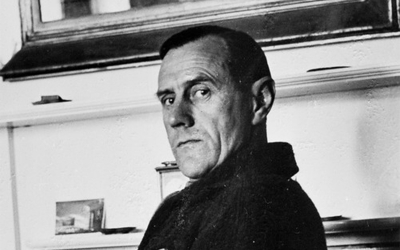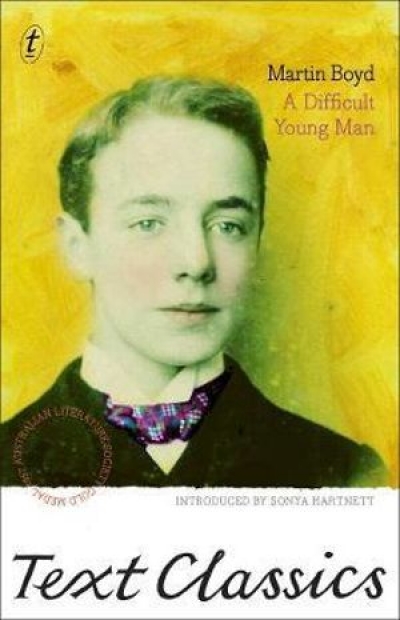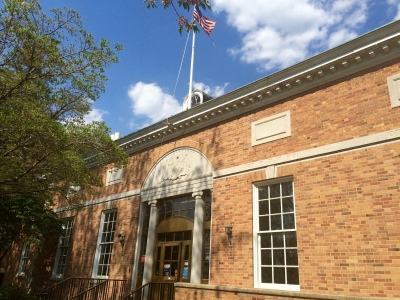Essays
By the time I found him twenty-five years ago in the Adelaide Hills, Glen McBride was old, tiny, spry, and ready to boast about his career. I doubt many readers have heard of this little man or know of his pivotal role in the literature of this country. That’s what had me knocking at his door. And though he disowned none of it in the hours we spent ranging over his life and times, what really perked him up was confessing his part in the salami and sausage business in that part of the world.
... (read more)When the ALP conference voted to amend the party platform on same-sex marriage at the end of last year, there was a flurry of debate in magazines, newspapers, and online. The platform now states: ‘Labor will amend the Marriage Act to ensure equal access to marriage under statute for all adult couples irrespective of sex who have a mutual commitment to a shared life.’ For lexicographers, this event meant that the word marriage appeared in Australian sources with greater frequency than ever – and with a greater variation of meanings. Whatever the word’s official definition in Australian law or in the minds of those opposed to the notion, suddenly there was an abundance of evidence that Australians were using the word marriage to refer to the union of two people regardless of sex, and that eventually this would have implications for the definition of the word in all our dictionaries. In addition to new expressions such as marriage equality, there were also new senses of old words such as marry, husband, wedding, widow, widower, and wife.
... (read more)If you’re a theatregoer, then somewhere along the line you’re bound to have seen The Government Inspector, Nikolai Gogol’s comedy about a rapacious nobody being mistaken for a government official by the citizens of a nameless provincial backwater. (They too are nobodies, greedy to be somebodies.) You might remember (since it’s a line that will have evoked both your contempt and your compassion) that the fussy fool Pyotr Ivanovych Bobchinsky, a local landowner, who fails to exist to the point of being almost indistinguishable from his companion Pyotr Ivanovych Dobchinsky, says to the government inspector (who isn’t one):
I beg you most humbly, sir, when you’re in St Petersburg, say to all the different bigwigs there – the senators and admirals: You know, in such-and-such a town, your Excellency, or your Eminence, lives Pyotr Ivanovych Bobchinsky. Just say that: lives Pyotr Ivanovych Bobchinsky … And if you’re speaking to the sovereign, then say to the sovereign as well: in such-and-such a town, your Imperial Highness, lives Pyotr Ivanovych Bobchinsky.
... (read more)'Letter from Jaipur: Free speech and sectarian tensions at the Jaipur Festival' by Claudia Hyles
This year’s Jaipur Literature Festival (20–24 January) more than lived up to the Indian Ministry of Tourism’s slogan – ‘Incredible India’.
... (read more)Few writers, it could be argued, have ever cannibalised life for their art as ruthlessly and consistently as did Martin Boyd; and few are born into situations which lend themselves so readily to art. Boyd’s working life – indeed, much of his entire existence – was spent trying to unite the past with the present, the old world with the new, himself with the man he might have been; and in committing his efforts to paper. To this end, he never shirked from using friends and relatives as material for his novels, as well as the real-life experiences of himself and of others. If he paid a price for this – which he occasionally did, for people often hanker to be preserved in print, only to resent the style of preservation – the consequences gave him little pause. By the time he wrote A Difficult Young Man, focusing the cool spotlight of his attention on his brother Merric as well as more sharply on himself, Boyd had form as a writer whose true gift lay not in the power of his imagination, but in the brilliance of his ancestral inheritance.
... (read more)Every day for the past few months, the Sydney linguist Michael Walsh has been sitting in the Mitchell Library poring over old manuscripts. He is extracting old wordlists of Aboriginal languages from the library’s rich collection of early British settler diaries, missionary field notes, and unpublished historical documents for a project funded by the State Library of New South Wales and Rio Tinto. This week, Michael sent me twelve scanned pages of a leather-bound diary he discovered which belonged to Richard Tester, who had recorded his daily adventures in 1860, travelling overland from Kerkaraboo on the Wakefield River to Melbourne and the goldfields.
... (read more)The Princeton Post Office, as befits this famed university town, has a certain grandeur. It is small – Princeton is a village after all – and modest in its proportions, but grand in aspiration. As you step through its panelled doors your gaze is drawn by the long parade of milk-glass and bronze lights towards the mural that adorns the far wall. Like the White House murals, it is lofty, but almost domestic in its depictions of American history, American hope, American mythology.
... (read more)I first discovered Australian literature in Argentina. While I was there studying Argentinian literature at the University of Buenos Aires in 2009–10, I spent many nights hunched over the table in our dingy kitchen with one of my housemates, Teresa. We would pick over the politically infused vernacular of the short stories ...
... (read more)We are on the verge of another revolution in dictionary-making. Since the seventeenth century there have been three major revolutions in lexicographic practice. In 1604 Robert Cawdrey produced the first monolingual English dictionary, which was – radically – arranged alphabetically. In the middle of the eighteenth century, Samuel Johnson employed literary citations to illustrate the meaning of the words in his dictionary. And in the nineteenth century, James Murray began to produce the first great historical dictionary, tracking the use of a word over time, and extended the making of dictionaries beyond his Scriptorium of lexicographers working in Oxford by calling on contributions from around the globe. This was an enormous undertaking, and the first edition of the Oxford English Dictionary (OED), begun in 1859, was not completed until 1928 (the second edition followed in 1989, and the third edition, published quarterly online, was begun in 2000).
... (read more)Christina Stead is an author perennially ripe for rediscovery. Her acknowledged masterpiece, The Man Who Loved Children, came out originally in 1940; in 2005, it figured in Time’s list of the 100 best novels published since 1923. But in his introduction to the Miegunyah Modern Library edition of the novel, American novelist Jonathan Franzen cites ...




